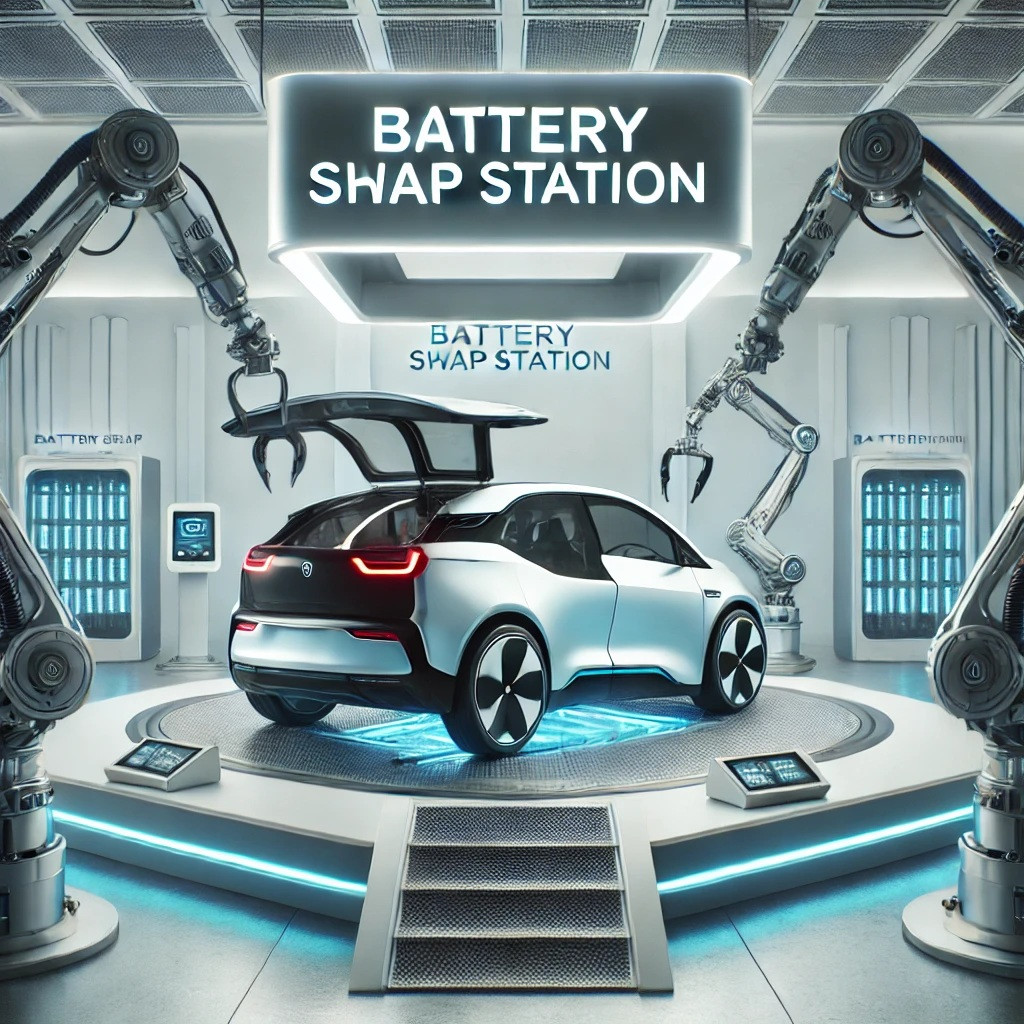Battery Swapping: Game Changer or Niche Solution?
01/04/2025
Once celebrated as an essential part of e-mobility and later declared obsolete, battery swapping stations are now experiencing a small revival — at least in certain regions and for specific vehicle categories.
Battery swapping offers several advantages—quick battery replacement in under 5 minutes, lower vehicle upfront costs, access to well-maintained batteries, and efficient battery recycling. However, despite its benefits, only a few players, like NIO, are actively pushing the concept beyond China.The Reality? So far, battery swap stations have struggled with high infrastructure costs, operational challenges, and a lack of standardization, making profitability a major hurdle. While some see it as a solution for grid stability amid the rise of megawatt charging, global perspectives on battery swapping remain divided.Regional Differences in Battery Swapping DevelopmentChina: The Most Advanced MarketChina leads the way, thanks to strong government and policy support. The market is booming, especially for electric 2-wheelers, with thousands of swap stations dominated by state-owned companies like China Tower. For 4-wheelers, private companies like NIO, Aulton, and Geely are driving adoption, but the market remains fragmented due to varying designs and standards.Recently, CATL launched the "Choco-Swap" battery initiative, with a goal of establishing 30,000 swap stations and a partnership with NIO. Despite the ambitious vision, scaling up will be a challenge. To succeed, companies must integrate Energy as a Service (EaaS) solutions to offset high infrastructure costs.Heavy-duty vehicles (e-trucks) are also a growing segment, with China leading in e-truck sales. Nearly 50% of e-trucks sold are swap-capable, despite the underdeveloped truck-swapping infrastructure. The push for e-truck swap stations is largely led by state-owned energy providers, exploring multiple use cases to ensure feasibility. Overall, battery swapping in China is expected to grow alongside DC fast and megawatt charging solutions rather than replace them.India: Focus on 2/3-WheelersIndia's battery swapping efforts are primarily aimed at electric 2/3-wheelers, with only a few pilot projects for electric buses. The government has drafted policies and provided subsidies, but regulations remain unclear, and industry consensus is lacking.Several startups and established players like Hero and Honda are betting on battery swapping, launching swap-capable models. However, concerns over high infrastructure costs, heavy taxes on swappable batteries, and overall market acceptance remain challenges for large-scale adoption.Europe: A Niche Market with Minimal ProgressBattery swapping has little to no momentum in Europe, with no government push or industry-wide standardization. The only significant player is NIO, which has established 59 swap stations across the Nordics and Germany. NIO is also promoting the DIN EN IEC 62840 standard to improve reliability, interoperability, and safety—essential for fostering growth in the sector.Outside of NIO, only a handful of companies—primarily in the heavy-duty vehicle segment—are exploring battery swapping through pilot projects. Companies like AkkuSwap are working with truck OEMs and engaging logistics companies to drive forward standardization. However, the path to widespread adoption still seems quite long.Need for a Holistic PerspectiveThe volatility of power grids will continue to rise—driven by the growth of renewable energy as well as increasing peak electricity demand, for example, from fast charging. In this context, expanding energy storage capacity is essential. Battery swapping stations could be part of a holistic e-mobility strategy and energy infrastructure by complementing stationary storage and public charging networks. Unfortunately, this perspective is currently being embraced and implemented only in China…If you're interested in discussing this topic further and want to know more about who is active, where, and with what solutions, feel free to reach out to us!Sebastian Lüttig
Phone: +49 6201 9915 67
sebastian.luettig@SchlegelundPartner.de© Schlegel und Partner 2025
Phone: +49 6201 9915 67
sebastian.luettig@SchlegelundPartner.de© Schlegel und Partner 2025